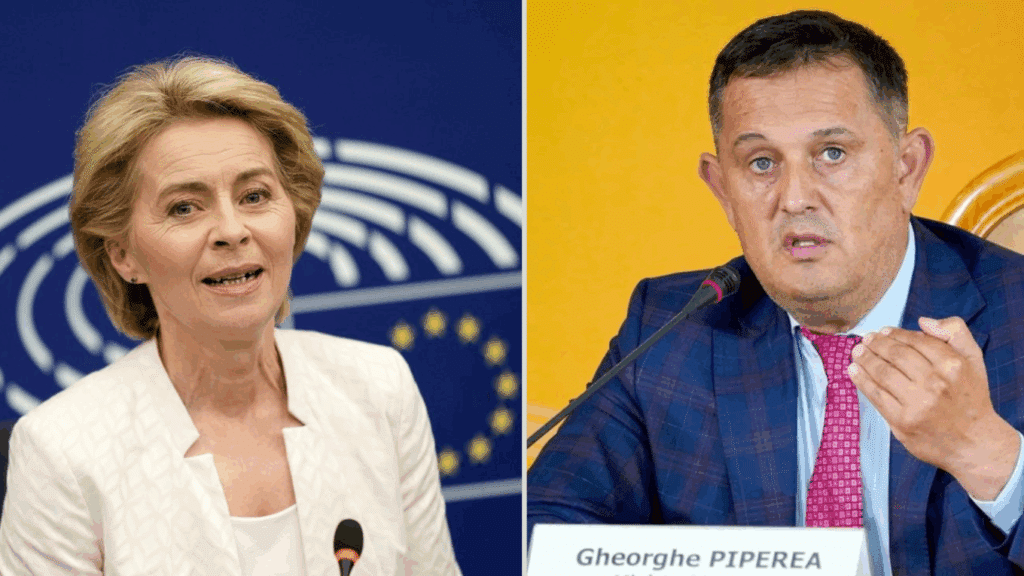
Today, the European Parliament convenes in Strasbourg for a highly anticipated debate: a motion of censure against European Commission President Ursula von der Leyen, spearheaded by Members of the European Parliament (MEPs) from AUR (Alliance for the Union of Romanians) and supported by 77 signatories across multiple political groups.
The motion accuses von der Leyen of violating democratic principles, primarily by conducting non-transparent vaccine procurement deals, interfering in national elections – including in Romania – and engaging in large-scale militarization policies without the explicit consent of EU citizens.
If passed by an absolute majority of MEPs (at least 361 votes), the motion would trigger the forced resignation of the entire von der Leyen Commission, opening the path for the nomination and confirmation of a new leadership team for the European Union.
While most political observers still expect von der Leyen to survive the vote, the very fact that a censure motion has made it this far reveals a deepening fracture between EU elites and a growing bloc of critics – particularly from nationalist, eurosceptic, and conservative parties.
The document, released publicly by the initiators, outlines three major complaints:
The motion reflects a growing sentiment of frustration within parts of the European Parliament that the Commission, under von der Leyen, has taken on increasingly centralized and unaccountable powers. Critics argue that European integration has morphed into technocratic rule, decoupled from democratic legitimacy.
Leading the charge, AUR’s MEPs have positioned themselves as defenders of sovereignty, transparency, and institutional accountability, gaining traction among voters fed up with what they see as Brussels overreach.
Even if the motion fails to gather a majority, the debate itself is a clear sign that dissent is no longer marginal. For von der Leyen, surviving the vote might not be enough to rebuild trust. For the European project as a whole, today’s debate exposes the growing gap between citizens and the institutions that claim to represent them.
As 2024-2025 brings a wave of national elections across the EU – and the 2024 European elections still reverberate – one thing is clear: Europe is at a crossroads, and the age of unquestioned federal authority may be coming to an end.